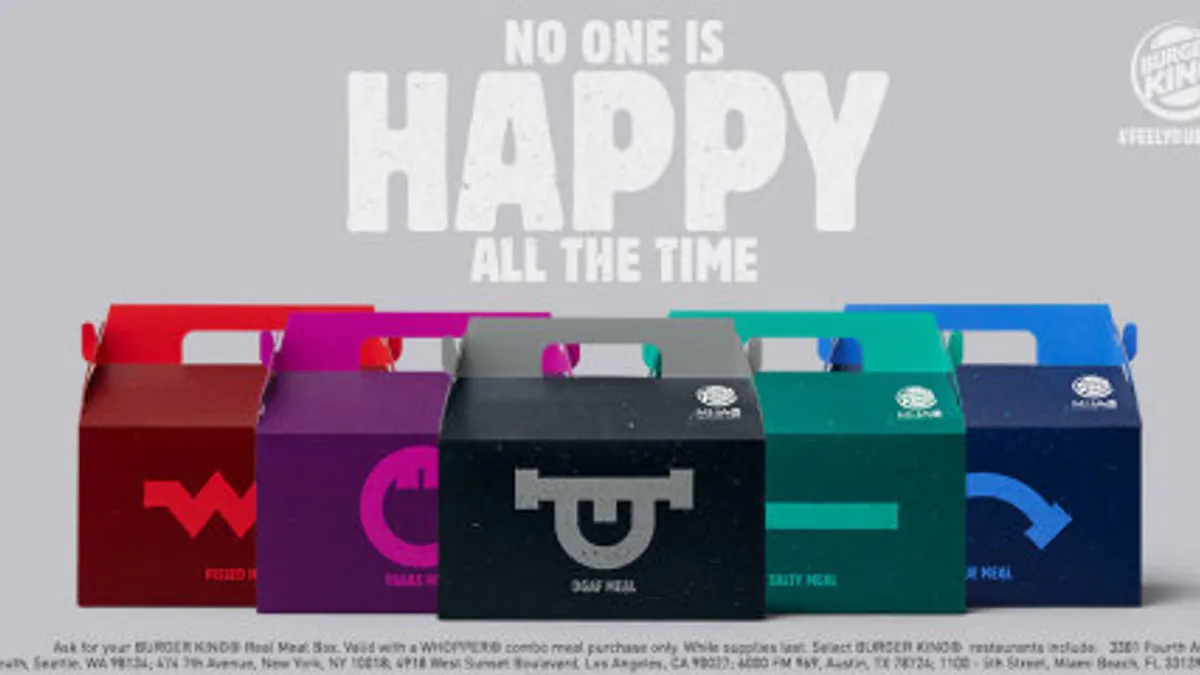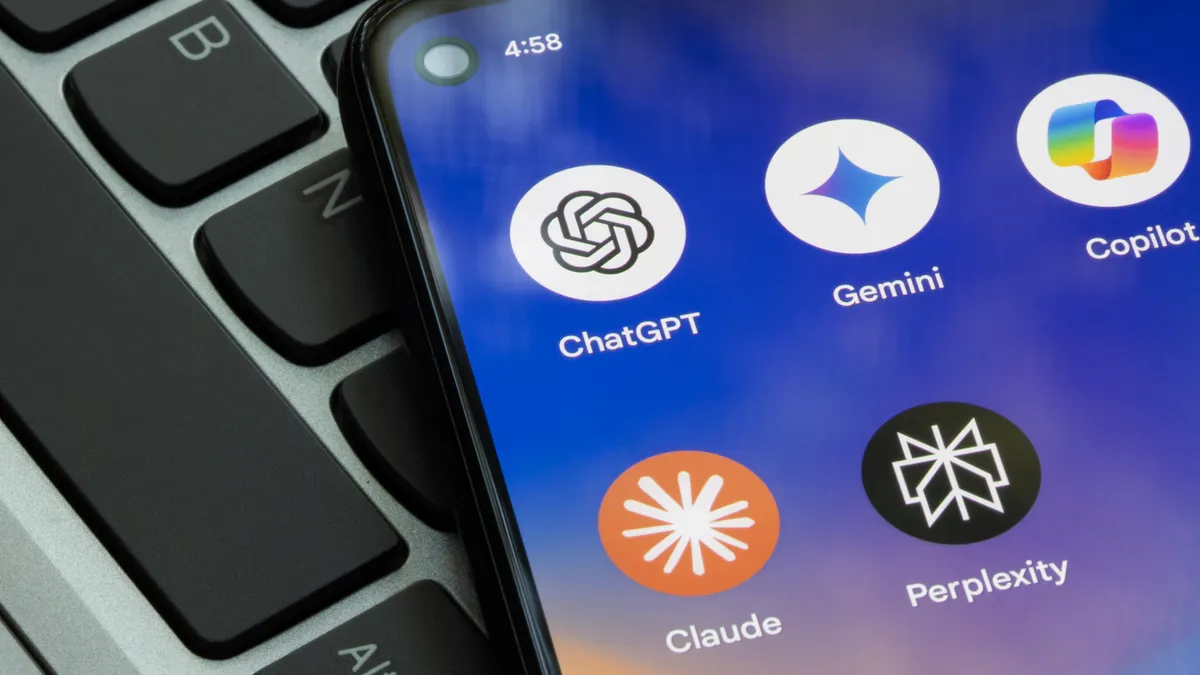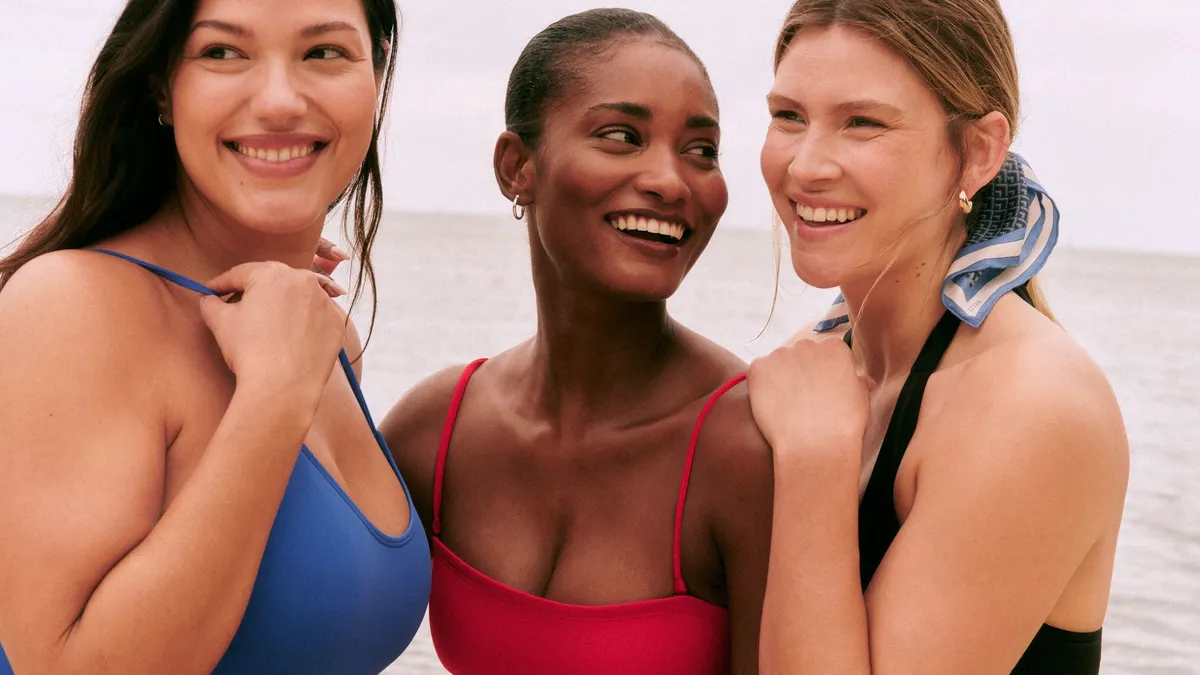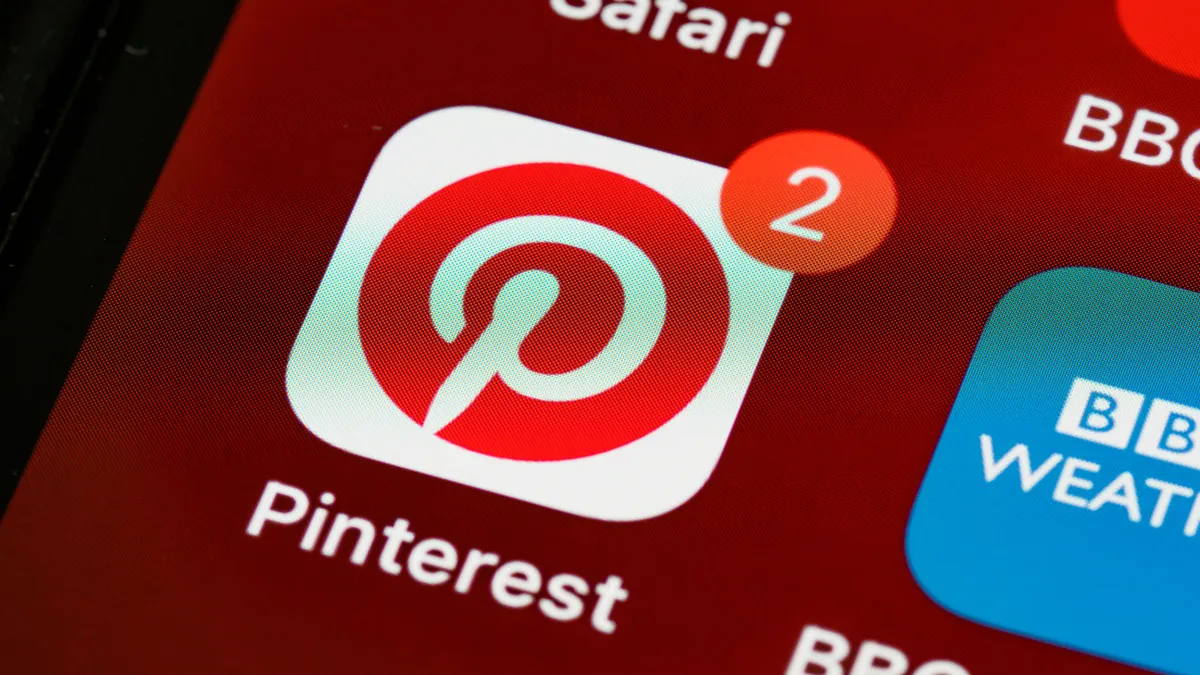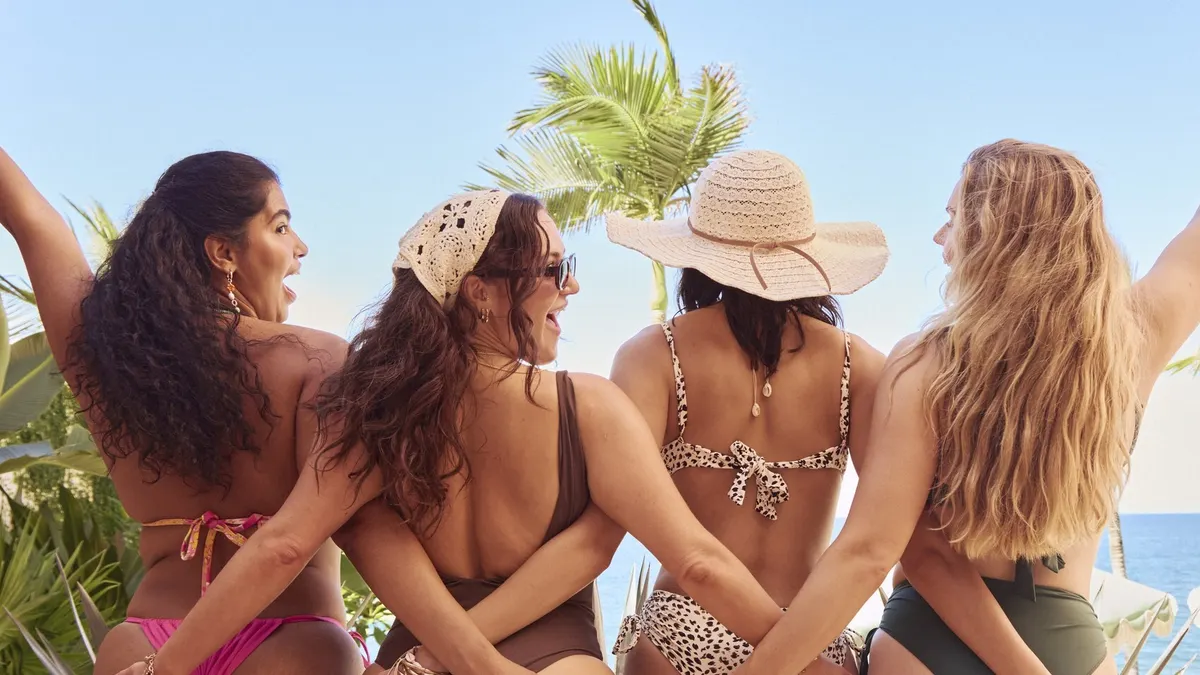A razor company talking about #MeToo and a burger chain tackling depression. These ideas share little in common, but in the broad marketing landscape of 2019, they capture the bold and occasionally perplexing lengths brands will go to create an impact with consumers — a trend that experts increasingly warn could be detrimental to the industry's health.
The above scenarios, drawn from ads by Gillette and Burger King, respectively, highlight how what's known as purpose marketing has evolved to not only encompass earnest emotional appeals, but also controversial elements, including direct address of timely political issues, or even ironic humor. These efforts aim to engage young consumers who report an aversion to traditional advertising and even capitalism at large. In their disparities, the messaging strategies also speak to a heated social climate where people are either hungry for relatable content or for corporations to use their platforms to amplify causes other institutions are ignoring.
But in their striving for bigger megaphones, brands may be responding more to an existential threat: Attention is only growing harder to earn in an increasingly fragmented media environment. Havas' latest Meaningful Brands report, released in February, estimated that about 77% of brands today could disappear and not receive much notice from consumers. That represented 3% year-over-year growth in brand apathy and the highest figure recorded for the metric since the agency began publishing its research 11 years ago.
Analysts and agency executives interviewed for this story reinforced that values- or cause-based advertising tied to brand purpose is nothing new. The growth in purposeful marketing can also be linked to a body of research around the demands of valuable but elusive audiences like Gen Z. But some cautioned that the degree to which brands are pursuing purposeful marketing — and the reasons they're doing so — is symptomatic of a particularly misguided and media-hungry moment for the business.
"As our industry has floated ever more away from making ads to making headlines, it's a pursuit for press coverage," John Matejczyk, co-founder and chief creative officer at agency M/H VCCP, said in emailed comments to sister publication Marketing Dive. "When a very specific social cause is used by a marketer to make headlines, it can seem quite desperate."
All-purpose marketing
Standout case studies have added fuel to the purposeful brand fire in 2019. Nike's work last year with Colin Kaepernick, the free agent NFL quarterback, has lingered long after launch because it proved that big brands partnering with a politically divisive ambassador can improve perception and drive sales. The sheer volume of brands searching for deeper meaning the past six months has still been a noteworthy development.
"It is dialed up a level versus what we've seen historically," Leslie Pascaud, Kantar's senior partner and head of brand practice for North America, told Marketing Dive in an interview.
Gillette in many ways helped to set the tone of 2019 with the January debut of "The Best Men Can Be," a campaign fighting toxic masculinity, including by referencing #MeToo. Some critics decried the initial short film as painting all men as poorly behaved or even predatory. Others wondered why a razor maker, and not necessarily a brand with a ton of baggage, was getting so righteous.
A half-year since launch, the campaign's sales impact remains unclear, per Pascaud. Kantar's tracking on social media reveals about a 50/50 split in consumer responses, with a slight bend toward the positive. But some believe the Procter & Gamble unit has done right by sticking to its guns while refining the message to be more targeted and resonant, such as through a more recent ad depicting a transgender teen's first shave with his father.
"They added more empathy to it and it really was about storytelling," Mary Noel, director at DoSomething Strategic, a creative consultancy focused on insights around young consumers and their activism, told Marketing Dive. "It says something that they stuck with it."
Authenticity in short supply
Gillette has the benefit of a parent organization that's previously bolstered brands around purposeful efforts — think of the splash P&G's Always made with "Like a Girl" in 2014 — and the resources to take big risks. Other grabs at purpose this year have resulted in more scratched heads than touched hearts.
Burger King faced blowback for a mental health awareness campaign in May that, like Gillette's, addressed harassment and subjects like depression. The advertising push was paired with special packaging sold in certain cities, with labels like the "Blue Meal" and the "Pissed Meal" — a riff on rival McDonald's Happy Meals. The goal was to spotlight the range of complicated emotions people feel, but the execution, which muddied serious topics with the Whopper maker's playfully ribbing tone, rubbed many the wrong way.
it's ok to #feelyourway pic.twitter.com/JiMDnzWCaI
— Stranger King (@BurgerKing) May 1, 2019
"They did partner with a nonprofit, but that didn't really lend the credibility that they needed to stay on top of such a serious issue," Noel said. "If it's not done with the intention that the weight of the issue merits, the authenticity will be called into question."
But Burger King stands out as just one of the bigger examples in a rising sea of corporations trying to come across as socially aware, or "woke," in discussing heavy real-world issues. Brands as diverse as Sunny Delight and Little Debbie started frank Twitter conversations about feelings of depression and anxiety this year, and were met with derision.
Many failed purposeful efforts don't extend beyond one-off ads or stunts, which supports criticism that brands get woke for self-serving reasons. Another blind spot is that many companies don't have the proper brand equity built up over years to cohere such strategies with the positioning most consumers are familiar with, according to Kantar's Pascaud.
"The question and the answer is, if you are going to do this, it's all about how much of it is going to ring true given who you are as a brand historically, what you stand for and also what you're doing, not just what you're saying," Pascaud said.
The 'woke-washing' problem
Beyond angering consumers in the call-out culture era, the result of poorly matched brand purpose can be general ineffectiveness, which marketers arguably consider worse. DoSomething Strategic published research in May that found many cause marketing efforts fail to connect with Gen Z, indicating that brands aren't breaking through with their target audience. The latest report from the UK's Institute of Practitioners in Advertising emphasized a "crisis in creative effectiveness" caused by a glut of campaigns that think in the short-term to chase awards instead of fulfilling a real need. It's a situation insiders are becoming acutely aware of and increasingly vocal about.
"The most glaring blind spot is just assuming this is a Cannes campaign. It just isn't," Pascaud said of purposeful marketing.
"As with any art, advertising suffers when it preaches."

John Matejczyk
Co-founder and chief creative officer, M/H VCCP
Matejczyk's agency went so far as to develop a card game called "Cannes U Not?" for the Cannes Lions International Festival of Creativity in June. Players draw a card from a deck assigned to a specific business — say, a diaper brand or luxury gym — and match that card with a different one representing random causes ranging from the gender pay gap to adult acne.
The gameplay satirizes the laughable qualities of what's been coined "woke-washing," where companies glom on to timely issues for no reason other than to capture a piece of the conversation. The game also highlights how the phenomenon is leading to an overall decline in marketing quality.
"As with any art, advertising suffers when it preaches," Matejczyk said.
Other executives are treating the matter as grave. Unilever CEO Alan Jope used Cannes Lions this year as a platform to decry how woke-washing will further degrade trust in a marketing industry that consumers already approach with skepticism. Unilever has the credentials to issue such condemnations, having helped modernize purposeful marketing through labels like Dove more than a decade ago, per Pascaud. Jope warned that brand purpose is at an "important crossroads" in 2019, where brands cynically attaching themselves to causes is starting to "infect" the ecosystem.
"Purpose-led brand communications is not just a matter of 'make them cry, make them buy,'" Jope said in a statement around Cannes Lions. "It's about action in the world."
Influence wanes
Marketers hopping on the purpose bandwagon might look to another space that's recently fallen out of favor as a cautionary tale. Influencer marketing has seen its star fade in 2019, as brands continued to get burned by endorsement deals and some influencers struggled to connect with followers beyond netting likes and shares.
"We have reached that jumping the shark moment," Mandy Eckford, managing director at the agency Fortnight Collective, said of influencer marketing.
Ad campaigns this year from Adobe and KFC have accordingly tackled the vacuity of online influencers and some of the channel's odder outgrowths. The fried chicken chain, for example, riffed on the bizarre but growing trend of virtual influencers, computer-generated inventions that act as a seeming inversion of the authenticity that drew brands to digital content creators in the first place.
A growing emulation of the influencer aesthetic could have to do with marketers wanting to produce media that's better suited to digital channels and the younger audiences that favor them, analysts said.
Check me out on Instagram. #secretrecipeforsuccess #VirtualInfluencer
— KFC (@kfc) April 8, 2019
"Goofy humor has been around for a long time, but we're seeing a lot more marketing that looks amateurish," Scott McDonald, president of the Advertising Research Foundation, told Marketing Dive. "Lower production values look like user-generated content ... If very traditional brands are using those production strategies, it's a signal of coolness and hipness and youth."
However, businesses have voiced their souring on influencers from a more top-level perspective. Unilever last year started enforcing far stricter standards to fight the prevalence of influencer fraud. In June, the packaged goods giant backed the influencer marketing firm CreatorIQ to better understand and manage the channel.
At Cannes Lions last month, Samsung Electronics' Global Marketing Chief Younghee Lee told The Drum she's both "skeptical" and "pessimistic" about the state of influencer marketing. Those comments stood in stark contrast to Marc Mathieu, Samsung's former top marketer in the U.S., who, according to The Drum, once said influencers could pose a competitive threat to the traditional ad agency model.
It's not hard to see the same downturn that's rocked influencers hitting marketers' favorite trend today. Terms like "woke-washing" being echoed by top executives suggest that the type of brave, purposeful marketing that just recently looked like a boon for an industry at a crossroads could go south soon, if it hasn't already.
"With any of these trends there's a tipping point," Eckford said. "Once it's over that tipping point, you start to see the parody."
Just look at Nike, so recently lauded for its Kaepernick campaign, which this month faced a social media firestorm for yanking a sneaker that featured Betsy Ross flag stitching some viewed as offensive. Reportedly leading the charge to get the shoe pulled was Kaepernick himself.



